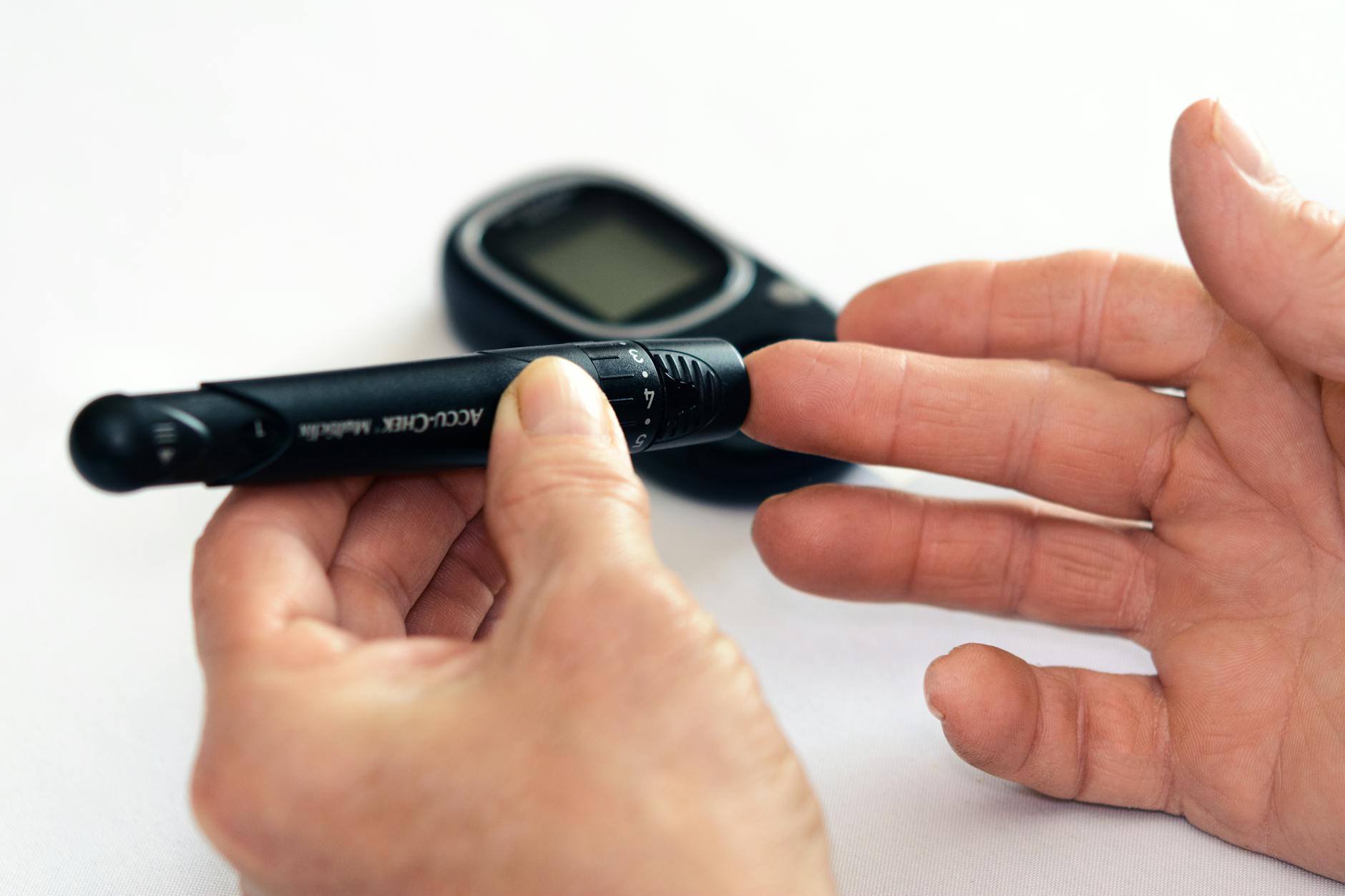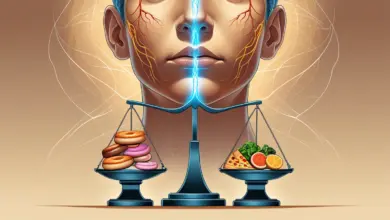Would Doritos Be a Good Food Option for a Diabetic?

Doritos are a go-to snack for their crunchy texture and irresistible flavor. But if you’re managing diabetes, every bite matters. With their high-carb content and potential to spike blood sugar, Doritos may not seem like the best choice at first glance. However, understanding portion sizes and nutritional impact can help determine whether they fit into a balanced diabetic diet.
Understanding Diabetes and Food Choices
Managing diabetes means more than just avoiding sweets. It’s about balancing foods to support stable blood sugar levels. Knowing what diabetes is and how food choices affect it is vital for making informed dietary decisions.

Photo by Nataliya Vaitkevich
What is Diabetes?
Diabetes is a chronic health condition where the body struggles to manage blood sugar (glucose) levels. It happens because the body either doesn’t produce enough insulin or can’t use it effectively. Insulin is the hormone that helps glucose move from the bloodstream into cells for energy.
There are three main types of diabetes:
- Type 1 Diabetes: The body produces little to no insulin. People with Type 1 must take insulin daily.
- Type 2 Diabetes: The most common form, where the body isn’t efficient at using insulin. This type is often linked to lifestyle factors, such as diet and exercise.
- Gestational Diabetes: This type temporarily occurs during pregnancy and can increase the risk of Type 2 diabetes later in life.
Each type requires careful monitoring to prevent blood sugar levels from rising too high or too low. Want to learn more? Check out this guide to diabetes diets.
Importance of Carbohydrate Monitoring
One of the biggest factors affecting blood sugar is carbohydrates. Why? When you eat carbs, your body breaks them down into glucose, which directly raises blood sugar. This makes tracking carbs a key strategy for those with diabetes.
Here’s why monitoring carbs is essential:
- Blood Sugar Stability: Keeping carb intake consistent prevents sharp spikes or sudden drops in blood sugar.
- Better Insulin Management: For people taking insulin, matching dose levels to carbohydrate intake is crucial for balance. Learn more about carb counting techniques.
- Avoiding Long-Term Issues: Poorly managed blood sugar levels can lead to complications like heart disease or nerve damage.
Diabetics often use tools like food diaries, apps, or nutrition labels to track carbs accurately. Balancing carbs with proteins, fats, and fiber can also ease the blood sugar spike.
Understanding how specific foods, like Doritos, affect these factors is an important part of determining whether they’re a smart choice for diabetics.
Nutritional Profile of Doritos
When it comes to managing diabetes, understanding the nutritional makeup of every bite can make all the difference. Doritos are a popular snack option, but how do their carbohydrates, fats, and sodium impact overall health, particularly for diabetics?
Carbohydrate Content
Carbohydrates are the primary nutrient in Doritos, and they play a central role in how this snack affects blood sugar levels. A typical serving of Doritos (about 1 ounce or 28 grams, roughly 12 chips) contains 18 grams of carbohydrates. Out of this, only a small fraction comes from dietary fiber (approximately 1.5 grams). The remaining carbs quickly convert to glucose, which may lead to an immediate spike in blood sugar levels.
For diabetics, this carb count can be significant. Consuming an uncontrolled portion could lead to post-meal hyperglycemia. This makes it critical to measure portions carefully if you’re thinking, Would Doritos be a good food option for a diabetic? Keep in mind that pairing Doritos with protein or fats can slow glucose absorption, offering some stabilization.
For a complete nutritional rundown, visit the Nutrition Facts for Doritos Chips.
Sodium and Fat Levels
If carbohydrates are the main players, sodium and fat are the supporting cast. A single serving of Doritos contains a hefty 210 milligrams of sodium. While this might not seem like much, indulging in multiple servings can quickly approach or exceed daily sodium limits. For diabetics, excess sodium intake can compound risks for high blood pressure, a common comorbidity.
On the fat front, Doritos pack 8 grams of total fat, with 1 gram coming from saturated fat. While this may not sound alarming, regular high-fat snacks can contribute to weight gain, impacting insulin sensitivity. However, the absence of trans fats is a small win for heart health.
For more information on how Doritos impact blood sugar and sodium intake, explore this guide on the Glycemic Index of Doritos.
By isolating these components, it becomes clearer why moderation is essential when considering Doritos as part of a diabetic diet. Choose wisely and balance it with healthier options to keep things under control.
Would Doritos Be a Good Food Option for a Diabetic?
When managing diabetes, every food choice matters. Doritos, with their bold flavors and crispy bite, are a favorite snack for many. But for those watching their blood sugar, their impact can vary based on portion size and balance with other foods. So, are they a good option? Let’s explore the pros and cons of eating Doritos for someone managing diabetes.
Pros of Eating Doritos
While they might not be the first snack you’d think of for a diabetic-friendly diet, Doritos do have some redeeming features when eaten in moderation. Let’s break down the positives.
- Portion-Controlled Enjoyment: A small serving (about 12 chips or 1 ounce) can satisfy cravings without overloading your diet with carbohydrates. This snack can offer a guilt-free treat, provided you stick to the recommended portion size.
- Low Trans Fats: These chips are free of trans fats, which are harmful to heart health. For people with diabetes, avoiding trans fats is crucial for reducing cardiovascular complications.
- Taste Satisfaction: Let’s be real—sometimes, you just want a tasty, crunchy snack. Doritos can serve as an occasional treat to keep cravings at bay, potentially preventing binge eating on worse options.
- Pairing Potential: Pairing Doritos with a protein-rich dip, like Greek yogurt or a small portion of guacamole, can slow glucose absorption and reduce blood sugar spikes.
Want to explore other foods that can satisfy cravings while supporting blood sugar control? Check out these 20 Best Snacks for People With Diabetes.
Cons of Eating Doritos
Despite their appeal, Doritos pose a few significant challenges for those managing diabetes. Here’s why caution is necessary.
- High Carbohydrate Content: A single ounce of Doritos contains about 18 grams of carbs, most of which quickly convert into glucose. For diabetics aiming to keep their blood sugar stable, such a rapid influx of sugar can make this snack difficult to manage.
- Potential for Overeating: It’s easy to consume more than the suggested serving, turning a harmless snack into a sugar-spiking problem. A “handful” can quickly turn into half the bag, sending blood sugar levels soaring.
- Sodium Overload: With 210 milligrams of sodium per serving, overindulgence can contribute to hypertension, a common comorbidity in diabetes. High sodium intake can strain your cardiovascular system, which is already a risk area for many diabetics.
- Low Nutritional Value: While they may satisfy a craving, Doritos provide little in terms of essential nutrients like fiber, protein, or vitamins. Snacks offering more balanced nutrition are likely better for overall health.
For more on the glycemic impact of Doritos, this guide offers insights into the Glycemic Index of Doritos.
Finding the right balance between taste and health is key for diabetics. Ensuring that indulgences like Doritos don’t interfere with blood sugar goals requires mindfulness, portion control, and pairing with stabilizing options. Want a comprehensive guide on better alternatives? This list of healthy snacks for diabetics might help you make informed decisions.

Photo by AS Photography
Alternatives to Doritos for Diabetics
For those managing diabetes, grabbing a bag of Doritos might not always be the best option. But that doesn’t mean you have to give up on enjoying snacks altogether. There are plenty of satisfying alternatives that are both tasty and diabetes-friendly. From store-bought options to homemade recipes, let’s dive into better choices to keep your blood sugar in check.
Healthier Snack Options
If you’re craving something crunchy and flavorful, there are plenty of options that can replace Doritos without the heavy carbs or unhealthy additives. Look for snacks that are low in carbohydrates but rich in fiber and nutrients. Fiber slows down digestion, helping to manage blood sugar spikes, which is key for diabetics.
Here are some great snacks to try:
- Veggie Chips: Made from kale, zucchini, or beets, these chips are high in fiber and much lower in carbs compared to traditional chips.
- Air-Popped Popcorn: About 3 cups of air-popped popcorn contain less than 20 grams of carbs and provide a satisfying crunch.
- Nuts and Seeds: Almonds, walnuts, and sunflower seeds are excellent low-carb options packed with healthy fats and protein.
- Cheese Crisps: These are essentially baked cheese snacks that are high in protein and very low in carbs. Perfect for dipping or eating alone.
- Greek Yogurt with Veggies: Use plain Greek yogurt as a flavorful dip for raw veggies like carrot sticks, celery, or cucumber slices.
For a deeper guide on diabetic-friendly snack choices, check out this list of healthy snacks for diabetics.
Homemade Versions of Chips
Prefer to make your snacks at home? DIY chips are a fantastic way to control ingredients and reduce unhealthy additives. This lets you enjoy your favorite flavors guilt-free while keeping your blood sugar stable. Homemade options often include whole, natural ingredients, ensuring better nutrition for those with diabetes.
Here are some delicious recipes to inspire you:
- Baked Apple Chips: A mix of natural sweetness and crunch, these chips provide fiber and satisfy your sweet tooth. Here’s a recipe for baked apple chips from the American Diabetes Association.
- Low-Carb Tortilla Chips: Using almond or coconut flour-based tortillas, you can make super crispy chips at home. Perfect for scooping guacamole or salsa. Try this low-carb tortilla chip recipe.
- Celeriac Fries or Chips: A unique alternative to potatoes, celeriac is lower in carbs and makes for delicious oven-baked chips. You’ll find this low-carb oven chip recipe a great addition to your snack repertoire.
- Baked Zucchini Chips: Thinly sliced zucchini baked with a pinch of salt and olive oil makes a light, crispy snack full of nutrients.
- Oil-Free Potato Chips: If you’re craving classic potato chips without the grease and salt, try this easy homemade potato chips recipe.
Homemade chips are an excellent way to enjoy a crunchy snack without worrying about hidden sugars and unhealthy fats often found in store-bought options.

Photo by Andres Ayrton
Finding snack replacements for Doritos doesn’t mean compromising on flavor or satisfaction. Whether you’re shopping for healthier packaged nibbles or experimenting with homemade recipes, the key is to choose options that align with your diabetic management goals.
Expert Opinions and Research
Deciding whether Doritos are suitable for someone managing diabetes requires both professional insights and scientific evidence. Understanding nutritionists’ perspectives and recent studies might clarify whether this snack can fit into a diabetic meal plan.
Nutritionist Insights
Dietitians often emphasize the importance of balance, portion control, and nutritional content when selecting snacks for diabetes management. While Doritos might not top the list of recommended options, experts point out that occasional indulgence in moderation is possible.
Many nutritionists suggest choosing snacks that:
- Support Blood Sugar Stability: High-fiber, protein-packed snacks are better for managing glucose levels than carb-heavy options like Doritos.
- Offer Nutritional Value: Whole foods like nuts, seeds, or vegetables provide essential nutrients while keeping blood sugar steady.
- Encourage Portion Awareness: Monitoring serving sizes can help prevent overconsumption and wild blood sugar fluctuations.
Dietitians highlight that pairing Doritos with a high-protein dip or side can make the snack less likely to spike blood sugar quickly. For instance, Greek yogurt dip or hummus can balance the carbs with healthy fats and proteins. For more snack advice, explore A Dietitian’s Top Snacks for People With Diabetes or 27 Best Snacks for Diabetics for ideas directly from nutrition experts.
Recent Studies
Scientific research reinforces the role of diet in managing diabetes effectively. Low-carb and high-fiber eating patterns have shown significant benefits for blood sugar regulation, making snacks like Doritos less ideal without modifications.
Key findings from recent studies include:
- Focus on Low-Carb Diets: A study published in ScienceDirect highlights that low-carb diets are increasingly recommended over low-fat ones for type 2 diabetes management. This is because carbohydrates directly influence post-meal blood sugar spikes. Read the study here.
- Mediterranean and Plant-Based Diets: Research in the field suggests that Mediterranean and plant-based diets can lower HbA1c (average blood sugar levels) effectively. This emphasizes incorporating more whole foods and fewer processed snacks like chips. Explore the detailed analysis.
- Portion-Based Diets: Adopting a portion-controlled eating strategy has been shown to minimize blood sugar fluctuations. This approach allows flexibility for occasional treats while maintaining overall balance. Further learning is available on type-2 diabetes dietary interventions.
Ultimately, the research supports making smarter snack choices that align with these dietary patterns. While Doritos can be a rare treat, their high-carb and low-nutrient profile generally places them outside the ideal range of snacks for managing diabetes.

Photo by Polina Tankilevitch
Key Takeaways
Navigating dietary choices with diabetes can feel overwhelming, especially when it comes to processed snacks like Doritos. To help you make informed decisions, here are the main takeaways about whether Doritos could fit into a diabetic diet and how to approach similar snacks.
Insights on Doritos and Diabetes
- Doritos are high in carbohydrates, with about 18 grams per serving. This can cause a spike in blood sugar if eaten without moderation or balance.
- Sodium content in Doritos is also worth considering. At 210 milligrams per serving, indulging too often can add up and increase risks for high blood pressure—an issue already common in diabetes.
- On the plus side, they are free of trans fats, which is good news for heart health—a factor diabetics must keep an eye on.
- Overall, while Doritos are not nutritionally dense, they can be enjoyed in small portions alongside protein or fiber-rich foods.
For more details about diabetic diet fundamentals, explore this guide on managing diabetes through nutrition.
Tips for Making Smart Snacking Choices
To keep your blood sugar management on track:
- Watch Portions: Measure out the chips before eating to avoid overindulging.
- Pair with Protein or Fiber: Balancing Doritos with a protein-based dip like Greek yogurt or pairing them with fiber-rich vegetables can slow down glucose absorption.
- Limit Frequency: Reserve them as an occasional treat and not a daily indulgence.
Curious about alternative snack ideas? These best snack brands for diabetes offer plenty of healthier and flavorful options.
The Bigger Picture for Diabetes
Processed foods like Doritos are only a small part of the diabetic diet. Prioritizing whole foods packed with nutrients, while minimizing simple carbs, is the key to thriving with diabetes. Consider healthier substitutes like veggie chips, nuts, or homemade snacks that provide your body with essential nutrients rather than empty calories.
For comprehensive tips on diabetes management and healthy eating, check out this resource on nutrition and diabetes.

Photo by Artem Podrez
Conclusion
Doritos can be part of a diabetic diet, but only in moderation and with careful planning. Their high carb content and sodium levels mean they can’t be treated as an everyday snack. Pair them with protein or fiber to minimize blood sugar spikes, and always stick to controlled portions.
For most, healthier alternatives like nuts, veggie chips, or homemade options offer better nutritional value and balance. Managing diabetes successfully involves making mindful food choices, so think twice before making Doritos a regular snack. Your health should always come first.





